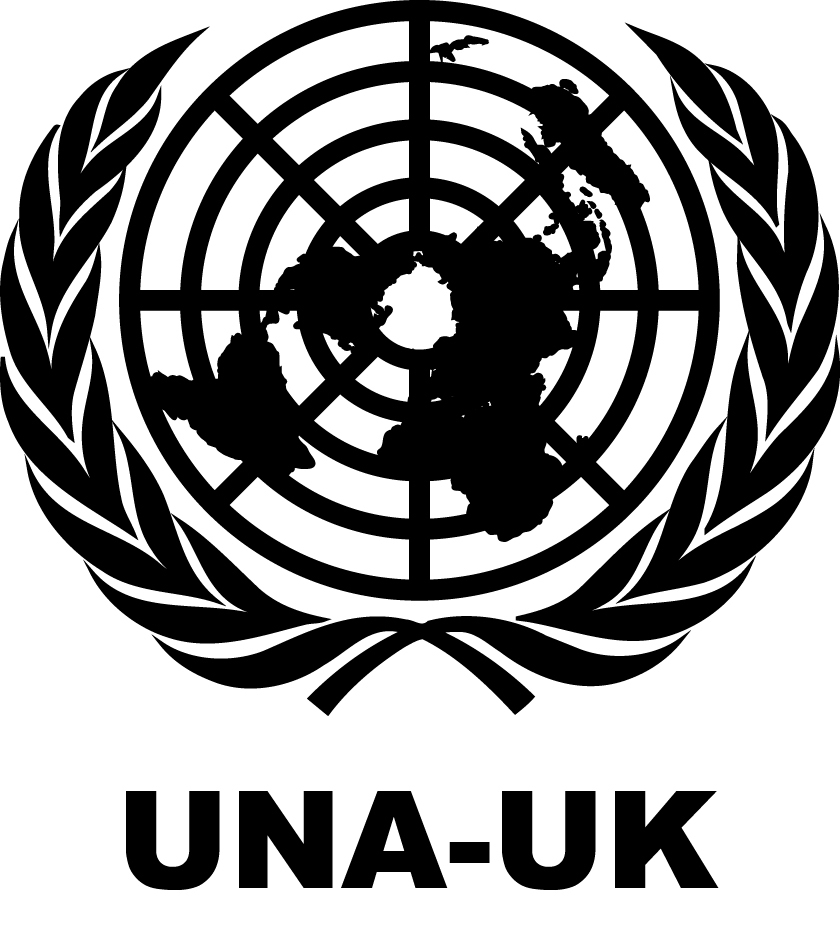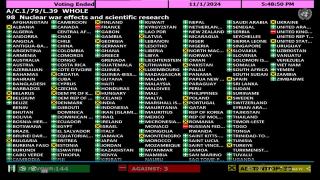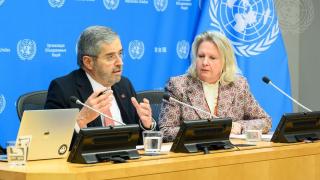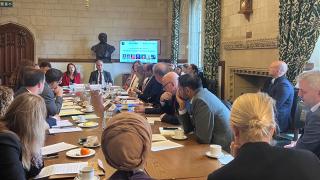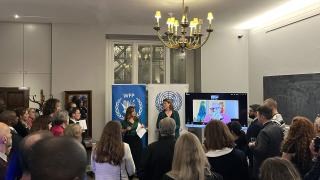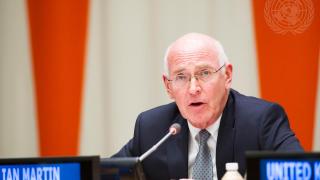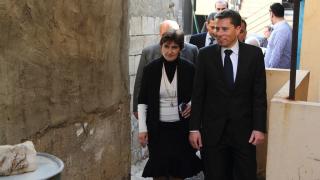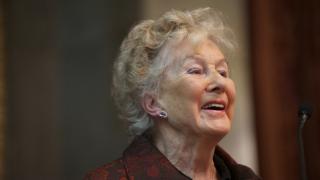
It is with a deep sense of loss that UNA-UK mourns the passing of Dame Margaret Anstee DCMG, passionate internationalist, pioneer for women and leading light of the United Nations. Dame Margaret passed away in the early hours of 25 August 2016.
Through hard work and determination, she rose from a quiet childhood in rural England to the upper ranks of the United Nations. Educated at Newnham College, Cambridge, she graduated with first class honours in 1944, three years before the University began admitting women to full degree status. Margaret was undeterred by barriers to women in higher education and went on to study at the University of London and work as a lecturer at Queen Mary University before joining the United Nations in 1952.
Dame Margaret served the United Nations for more than four decades. She spent the early years of her career working on development projects in field missions across the globe. Passionate about assisting developing states, she was appointed the first female Resident Representative for the UN Development Programme and held the role in eight different countries in Africa, Asia and Latin America.
Told that appointing a woman was a test, a “pilot project”, when she found herself the only woman in post seven years after her initial appointment, she asked headquarters whether she was “the light that failed”.
However, the pilot project was a success, and in 1987, she became the first woman to be appointed Under-Secretary-General. She served concurrently as the Director-General of the UN in Vienna and Head of the Centre for Social Development and Humanitarian Affairs, coordinating all UN drug-control programmes. She was also the first woman chosen to lead a UN peacekeeping mission, running peace operations for UNAVEM II in Angola while serving as the Secretary-General’s Special Representative.
Through poverty, war and natural disasters, she maintained a firm and reassuring leadership, taking responsibility for disaster relief in Bangladesh during the famine of 1973, for the earthquake in Mexico in 1985, for Chernobyl in 1991 and for the burning of Kuwaiti oil wells in 1992.
Following her retirement from the United Nations in 1993, she remained actively involved in international affairs, including through her support for UNA-UK. In 1994, Dame Margaret wrote a report for the UN Conference on Trade and Development and served as an advisor to the Government of Bolivia. From 1996 onwards, she was an advisor to the UN Departments of Political Affairs and Peacekeeping Operations and actively participated in practical training for troops.
She was made a Dame Commander of the Most Distinguished Order of St Michael and St George in 1994 and received Honorary Degrees from the Universities of Essex, Westminster, London and Cambridge.
In her autobiography, Never Learn to Type, Margaret described her career and adventures with passion, telling stories of driving across the Andes in her VW Beetle, negotiating with rebel fighters in Nigeria, making a ball-gown out of a parachute and battling drug cartels in Colombia.
Dame Margaret was a pioneer for her gender, breaking boundaries and inspiring generations of women to take on the challenge of international careers. She described the difficulties of forging new paths for women in an article for UNA-UK’s New World magazine in 2011, sending a powerful message to those who seek to follow in her footsteps:
My message to the new generation of women is: never forget that you are still pioneers! Keep up the good work and, above all, work together to strengthen the
role of future women. This troubled world, and the UN, need now, more than ever, to capture the energy, ideas and insights of our half of humanity, too long ignored.
In June 2016, Dame Margaret spoke with UN Radio about the challenges facing the United Nations. The recording, which was her last interview, is available to download here.
Dame Margaret was the first recipient of UNA-UK’s Sir Brian Urquhart Award for Distinguished Service to the United Nations, given to those who have made an extraordinary contribution to the organisation. She worked closely with UNA-UK, attending events, speaking at UN Forum and contributing to publications. She was treasured by staff and members alike and will be deeply missed.
Margaret was a powerful advocate for peace who pushed for the UK and its citizens to be actively involved in global affairs. At this time of political turmoil, her legacy of courage, integrity, passion and compassion on the international stage serves as an inspiration for us all. For UNA-UK and for the generations she inspired, Dame Margaret Anstee was never “the light that failed”, but the light that led the way.
Photo 1: Margaret Anstee receives the Sir Brian Urquhart award from UNA-UK at UN Day 2011. Photo 2: Margaret Joan Anstee, in charge of TAB field office in Montevideo, copyright UN Photo 21 March 1958. Photo 3: Secretary-General meets with Dame Margaret Anstee, copyright UN Photo 7 April 2003. Photo 4: President Castro and Director-General Anstee arrive for 8th UN Crime Congress, copyright UN Photo 27 August 1990.
